See you in court. It is one of those glib, macho cliches that make it into real-life exchanges. It would draw a deadpan response from the lawyers gathered for the latest Gazette roundtable discussion – disputes, civil and criminal, are their bread and butter. On a cold day in January, those who make it have avoided Aussie flu and navigated train strikes to exchange war stories and survey an uncertain future.
The advocate may be the public’s iconic image of ‘a lawyer’, but those present are a diverse lot. Andrew Morris, a solicitor-advocate at ITN Solicitors, has taken instructions in the Crown court, encompassing terrorism cases, ‘serious crime, serious violence, serious fraud, [and] serious historical sexual offences’. He has worked for the Public Defender Service and dealt with a number of reported cases in the Court of Appeal and High Court.
Sophie Khan specialises in civil liberties and human rights law, and has niche expertise in Taser-related injuries. She is chair of the Law Society’s Civil Justice Committee and secretary of SAHCA (the Solicitors’ Association of Higher Courts Advocates).
Ed Crosse is a litigation partner at international firm Simmons & Simmons and president of the London Solicitors Litigation Association.
Caroline Field, a partner at City partnership and employment practice Fox & Partners, is another member of LSLA’s committee. Whistleblowing and executive severance cases are a particular strength for her.
Unison senior solicitor Shantha David ran the celebrated four-year case that established the illegality of employment tribunal fees, triumphing at the Supreme Court in a judgment that cited Magna Carta.
James Le Gallais is a barrister by training, now working for niche litigation firm Peters & Peters on cross-border fraud cases. Radcliffe Chambers barrister Josh Lewison has a particular strength in insolvency cases, including cross-border insolvencies.
The impact of Brexit involves uncertainties that are uppermost in the minds of several attendees. Simmons’ Crosse opens with a summary of his concerns – which cover both the status of UK advocates in certain proceedings and issues such as the enforceability of judgments (enforcement will also affect the practice of advocates).
Ireland, where the number of UK solicitors joining the roll outnumbered Irish lawyers last year, is also a preoccupation. No one present has registered in Dublin, but Crosse notes: ‘In some areas like competition and patents, it’s a big issue for people who regularly had rights of audience in front of the CJEU. The concern I have mirrors the concern I have with jurisdiction and enforcement – is it sufficiently high up the government’s list of points to negotiate that they’ll actually be able to do something, and secure some reciprocal rights?’
He adds: ‘It goes back to having your cake and eating it – we’re not prepared to have free movement in the context of people and therefore, why should we necessarily assume that we’ll have automatic rights of audience in the European court? I see that as a big problem… there will be value in some of our partners being dual-qualified.’
Irish registration is a ‘defensive’ move for many, Fox & Partners’ Field notes – completed in case it turns out to be useful. ‘It is, at the moment, a fairly easy process [for barristers as well as solicitors],’ she says, while noting that registration is not the same as holding a practising certificate. ‘You need the practising certificate in order to have your rights before the European courts,’ she stresses.
Le Gallais’ colleagues at Peters & Peters are also looking across the Irish Sea. ‘We do a fair amount of competition and sanctions work… we’re taking a targeted approach in terms of the people that do a lot of that work [getting] their practising certificate in Ireland,’ he says.
Full audience rights before European courts and the ability to ‘fly in’ on a key advisory basis are fundamental, Field says. ‘There’s the question of free movement of people,’ she explains. ‘The reality is… if we’re not allowing that to be the case here, and then expecting the same movement that we benefit from now, the risk [is] that you don’t get to have the temporary working arrangements that we currently possess under EU law.
‘The major point,’ she adds, ‘is that all of this just makes [us] much less competitive as a UK market. That’s the real worry.’
Khan, who identifies as a ‘hard Brexiteer’, is optimistic about the likelihood of a ‘transfer test’ for both barristers and solicitors, akin to the requirements placed on Commonwealth-qualified lawyers practising in the UK.
Unison’s David also homes in the uncertain status of a lawyer: ‘Where would the rights of audience be? If you wanted to challenge something, or if you were being challenged – if your client is being challenged – how do you protect them? That’s the point.’
Although he has a very different client base, this is also on Crosse’s mind. With ‘reciprocal arrangements’, he notes: ‘I think we’ll get there eventually. What worries me is the uncertainty that clients have in the meantime. If they’re facing a large competition case, they may well feel, “We had better use a law firm on the continent to do this, because we may find our lawyers can’t represent us”.’
In some international cases, however, things will not change, Lewison notes. For example, multiple instructions commonly occur already in insolvency litigation, he says – and where the case justifies it this will continue.
‘From a bar perspective, that’s not unusual,’ Lewison explains. ‘There’ll be a single law firm perhaps with multiple offices, but they’ll have local counsel doing different things. I had a case recently where a bankrupt originally came from India, where he’d left a lot of assets behind. He’d come to England, leaving a vast trail of destruction behind him, and flitted off to Germany where he was then residing. So, I was handling all of the advocacy on the English matters. There were German counsel doing things in Germany, and there were Indian counsel doing things in India. One law firm plus local agents were running the case.’
As a barrister/solicitor [I’m a] strange hybrid… I don’t wear a wig anymore, and I don’t get up in fancy dress
– James Le Gallais,
Peters & Peters
Post-Brexit, there will be further complications though, he adds, relating not to UK lawyers but to the status of the insolvency practitioner who instructs them. ‘The big extra burden on clients will be getting insolvency practitioners appointed. At the moment, if you have an English liquidator appointed he or she can get themselves recognised in every other European jurisdiction,’ Lewison says. ‘Unless there is some similar arrangement, all that ends [in 2019]. What replaces it nobody really knows.’
The legislative tools deployed to ease transition remain a concern to many. David cites employment law, as this is currently set to be dealt with through statutory instruments. ‘There’s a seven-page-long [statutory instrument proposed] on employment law, which is very short given how many pieces of legislation there are in this area. It is quite worrying. There is language within the statutory instruments, such as “TUPE-like”… which doesn’t actually mean anything.’
She adds: ‘My concern is we will have loads of satellite litigation trying to determine what these things mean… the law might dictate how advocates have to behave.’
Keeping proportion
Day to day, those present have a close interest in the cost of running cases. In high-value matters, that pressure arises from clients taking a commercial view on the cost of litigation. Many lower-value claims have become more difficult to run, following limits placed on recovering conditional fees in successful cases. And cuts in public spending affect the economics of many criminal cases.
‘There needs to be a proportionate solution for the lower-value claims and it doesn’t exist at the moment,’ Field says. While litigation funding solutions have developed considerably in recent years, they do not help with what are, to individuals, fairly substantial claims. ‘They don’t promote access to justice for even £1m-£2m claims in reality,’ she says, ‘because there’s just not a big enough pot there in order to enable a solicitor to run a case effectively given the current court system.’
Field urges ‘solutions provided by the court and backed by the profession that enable a more proportionate approach to that litigation’.
That, she adds, would require a change in mindset for many litigators: ‘I’m not talking about the very rigid approach to litigation that we all know and love at the moment… disclosure, then the witness statements, then a trial for however many days.’
This proportionate approach requires ‘buy-in by the profession and by the judiciary, in order to really take over these cases and manage them properly’, she argues.
In commercial and property disputes, adds Crosse, this also means ‘trying to provide a structure for the parties to ask themselves the right sorts of questions about disclosure and how, potentially, to cut it down’.
Crosse was a member of the judicial working group, chaired by Lady Justice Gloster, established to look at ways to cope with the scale and complexity of disclosure in the business and property courts. It reported last November and a pilot will follow. If the pilot forms the basis for reform, that will entail a new way of thinking and working on disputes that are potentially headed for full trial. ‘When we talk about leaving no stone unturned, then in one particular area, say, relating to a fraud allegation, you will say, “We want the widest possible form of disclosure on that date range with these custodians. The rest, we’re going to park for a while, because maybe it relates to quantum or side issues”.’
Crosse adds: ‘Hopefully, by having those discussions and recording it in a central document as a replacement for the electronic document questionnaire, the judge on the Thursday evening before the first [case management conference] will know where the areas of disagreement are. That will be the focus of the discussions at the CMC. With some improved models for disclosure, which build on existing concepts like request-based disclosure… the court will be able to say, “On these issues we have this type of disclosure – on these issues we’re not going to have any disclosure at all”.’
That work is ‘informed by the feedback that we’ve had from small to large firms, from clients and from the judiciary’, Crosse says. Respondents answered questions such as ‘What are the 50 things you hate about disclosure?’.
When you ask for time, it always seems to be your fault because the trial has already started. You’re having to ask, “Can I please have a day?”. And you get the response: “Well, that’s £10,000 of court time you asked for”
— Andrew Morris, ITN Solicitors
‘Ultimately,’ he concludes, ‘what that should lead to is much more focused and proactive case management by the judges, because they’ll have the information. Another element of it, based on the feedback, is imposing duties on the parties and their advisers to take steps to try to think about how you can minimise disclosure. If you’ve got a party on the other side that is not engaging in that process at all, then they will be in breach of that duty, and the court will then be able to make an order that has consequences to ensure that things happen.’
In other types of case, a more limited approach to disclosure would be inappropriate – a point that Crosse concedes. Khan is concerned that an attempt to reduce disclosure in the claims she deals with would have a detrimental effect. ‘In your area it would be fine,’ she tells Crosse, ‘but having those capped costs, and that limitation of disclosure in… my area, for example, there would be no justice at all. That’s the problem.’
‘Invariably, especially in employment law,’ David relates, ‘you find that you ask for disclosure, and you won’t get it all. Then you have to say, “I’m sure there were some minutes of a meeting somewhere.”
‘Of course, buried in those minutes will be the relevant sentence that you need and you only come upon it just as you’re doing witness statements – because your bundles are that high.’
Outside forums like the Commercial Court, Khan suggests, reforms will fail to deliver ‘unless we have a service at court which is reasonable’.
She adds: ‘We can’t [say] “let’s fix costs”, [or] “let’s limit disclosure” until the court system itself is sorted out,’ she stresses.
In a similar vein, Morris paints a grim picture of the effect funding cuts have had on the Crown Prosecution Service and courts service. These embed delays and costs, not least around disclosure, he says.
‘At Snaresbrook Crown Court recently I was dealing with a child cruelty case involving two intermediaries, three young children and interpreters,’ he recalls. ‘In the middle of the case we had disclosure of serious social services reports going back a number of years. The pressure really was quite immense, because there is no funding to properly prepare cases from the prosecution point of view. The lawyers that review them don’t have enough time or resources to actually consider the material and to consider things like third-party disclosure, and what should be given to the defence – particularly in serious cases.’
‘When you ask for time,’ Morris continues, ‘it always seems to be your fault because the trial has already started. You’re having to ask, “Can I please have a day?”. And you get the response: “Well, that’s £10,000 of court time you asked for.” [All because] the prosecution haven’t done their job properly.
‘This is now getting worse and worse,’ he notes, ‘because CPS funding has been reduced to such an extent that it [has] a bare-bones approach. Sometimes, you get to trials and they’ve done nothing.’
The discussion then turns to the future of the bar. Lewison relates his dissatisfaction with entry. ‘I’m certainly not happy with the state of access. There will have to be some very serious changes,’ he says. ‘At the moment… there are something like 1,500 new barristers called to the bar every year having done their Bar Professional Training Course (BPTC). You need a pupillage in order to practise and there are about 350 of them. So, you’re competing with 1,500 new barristers, plus probably another 2,000 barristers who didn’t get pupillage the last time around, which means that the odds are automatically stacked against you.
‘Fine, it’s a competitive profession, but that means you had to shell out £20,000 for the BPTC plus whatever you need to live on before you can even get to the door of pupillage. To me, that is a huge problem.’
Lewison recalls: ‘I was considering recently whether I should participate in the Speakers for Schools programme. Can I really put my hand on my heart and say to all of these young people, “Come and have a crack at being at the bar, it’s amazing”? Well, yes, if you’ve got £30,000 that you can gamble on it. I think that is really very difficult.’
The Bar Council has identified equal access to the profession as an area requiring attention, ‘particularly for those from lower socio-economic backgrounds’. Work in this area is ongoing.
Of course, the bar remains the key route to a career as a specialist advocate, he notes. ‘I don’t have any problem at all with solicitors becoming solicitor-advocates in increasing numbers. It’s a route that’s been open to them for years and years, [with] not a great deal of take-up. I think that’s partly because there isn’t that much of a role for specialist advocates within the current law firm business model.’
My concern is we will have loads of satellite litigation trying to determine what these things mean… the law might dictate how advocates have to behave
– Shantha David, Unison
Morris, who fulfils exactly that role, notes that solicitors face additional disadvantages here. ‘I think [solicitors] need to have something similar to the chambers system, or some kind of peer system, where you can meet people, talk about it, have regular CPD events. We just don’t have it… If you look at the criminal bar, their CPD events are extraordinary compared to what we do. They have constant expert evidence training, witness training, all of this sort of thing.’
There are areas where solicitors are bound to make inroads into work traditionally done by barristers. As Khan explains: ‘If I can do the advocacy myself, I don’t need to pay someone else… as a business model, it wouldn’t help me instructing someone and giving them half of my certificate. In the legal aid arena… solicitors, I think, really have to become solicitor-advocates to survive.’
Still, the expectation of those present is that the bar has a secure future, although Lewison notes that competition from solicitors and pressures on public funding may bear down on its size. To a degree, that will come down to an aspect of the bar that can be controversial – its collegiality or even incestuousness. It is put to the group that even sophisticated clients can be disconcerted when a rancorous dispute reaches court, and they can observe the ‘chumminess’ of opposing advocates.
Or is it a mark of civilisation that disputes can be determined in such an atmosphere? Le Gallais reflects: ‘Optically, from a client’s point of view, I can understand [that]. But I think it is a real mark of sophistication, the way that the barrister system works. I think it’s to do with the objectivity and the separation that you get from [instructing a barrister], [and] from the day-to-day fighting and the trench warfare that you often participate in as a solicitor.’
For that reason, Lewison concludes: ‘People have been predicting the death of the bar for 200 years. It hasn’t happened yet. I think we’ll be OK for now.’
To wig or not to wig?
Sophie Khan, Sophie Khan & Co: ‘No one does, do they? … I do only civil, and a lot of the judges don’t wear wigs anymore, so it’s only the barrister that looks the odd one out, which I find hilarious.’
James Le Gallais, Peters & Peters: ‘As a barrister/solicitor [I’m a] strange hybrid… I don’t wear a wig anymore, and I don’t get up in fancy dress.’
Andrew Morris, ITN Solicitors: ‘I always wear it… What you just do not need is anyone asking you why you’re not wearing a wig. It’s one of those things that distracts completely, because clients shouldn’t really be thinking, “Why are you not doing so?”.’























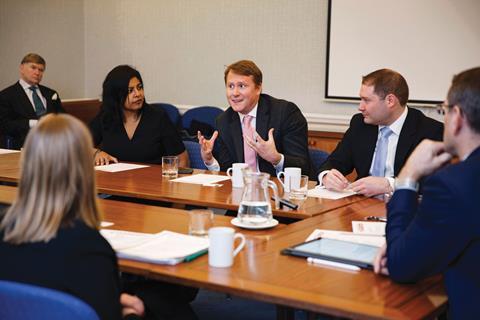
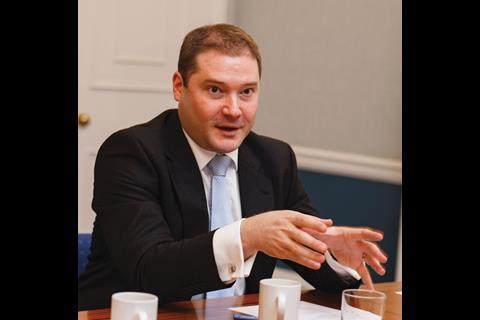

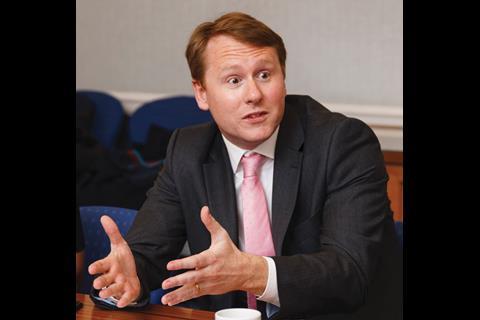
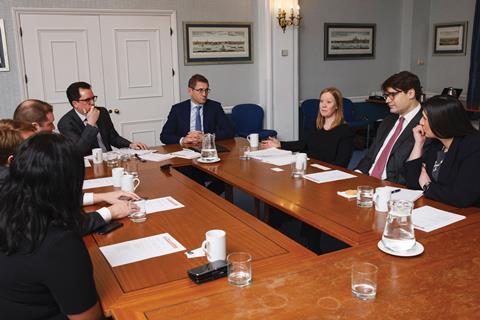

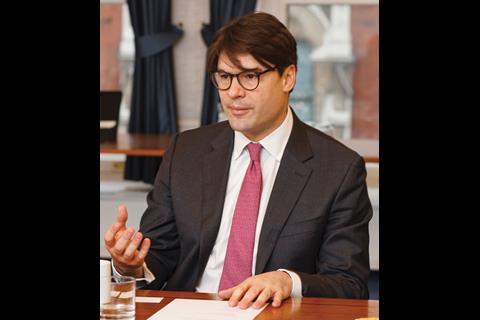
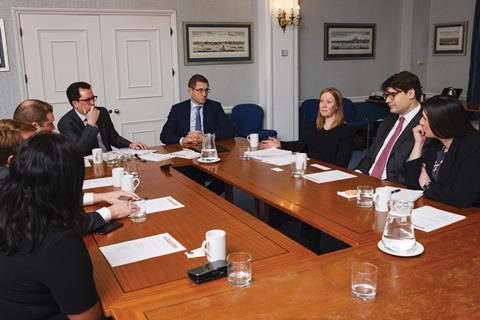
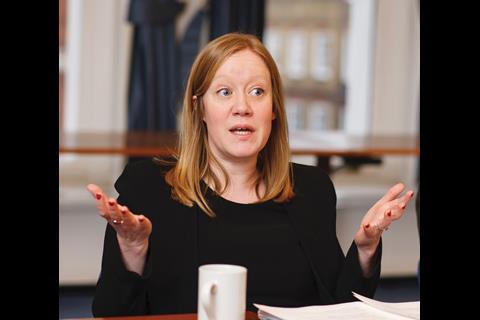
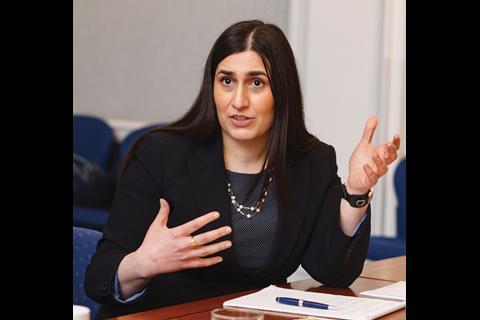
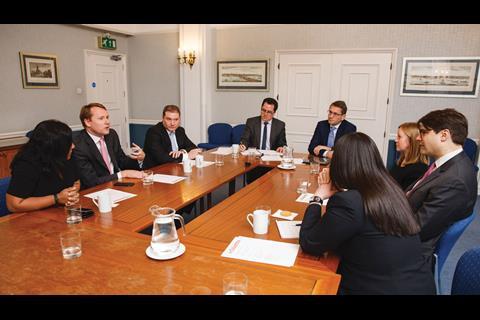
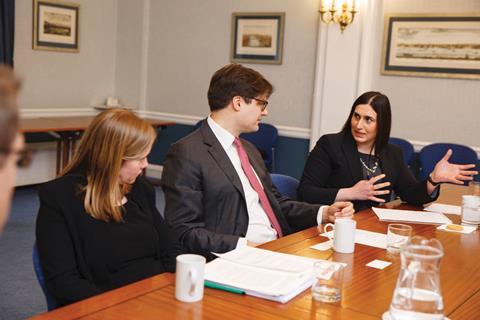








No comments yet